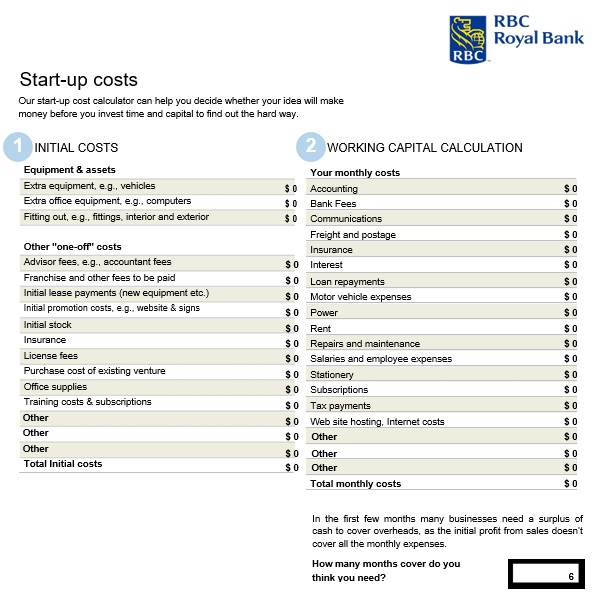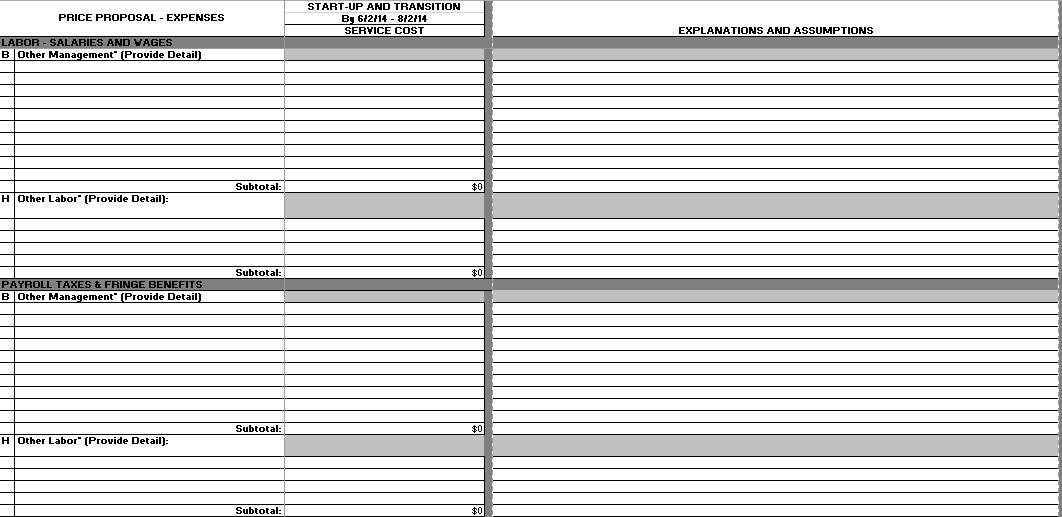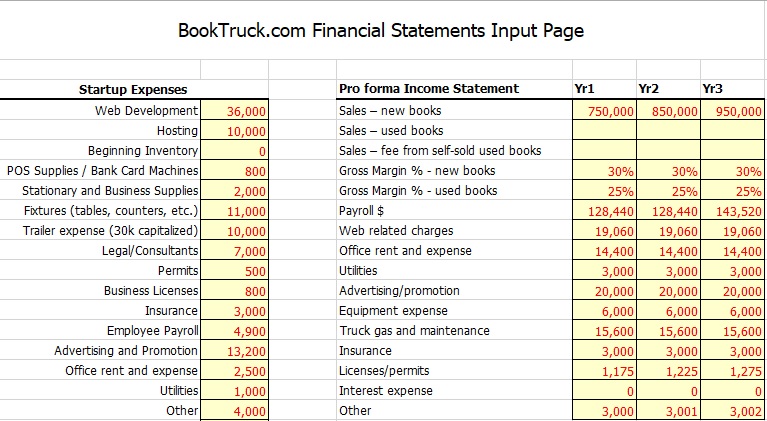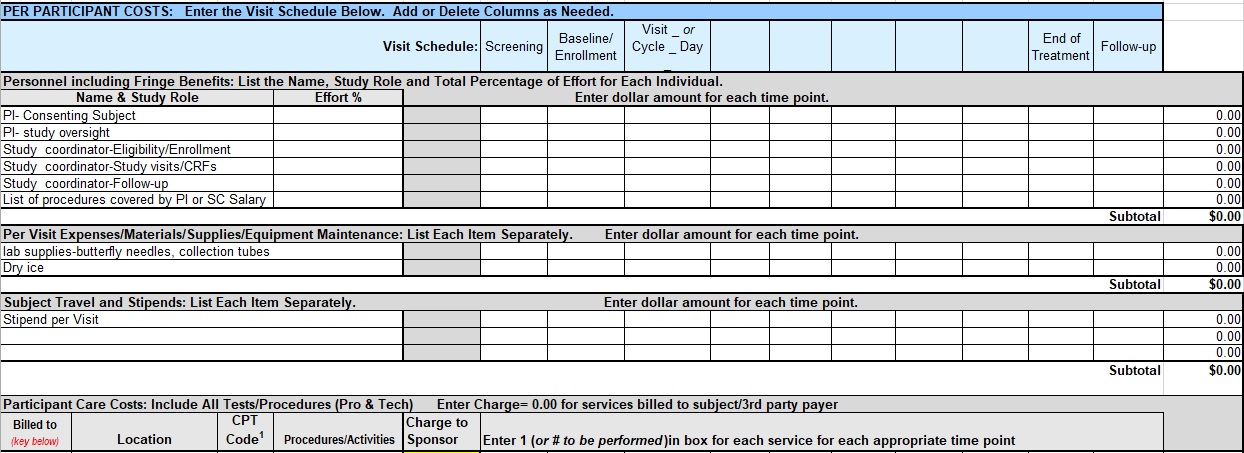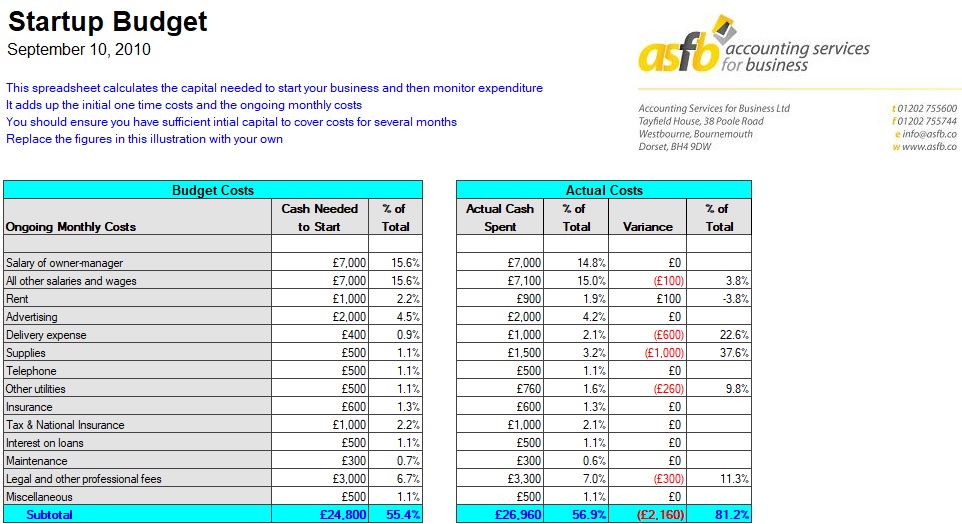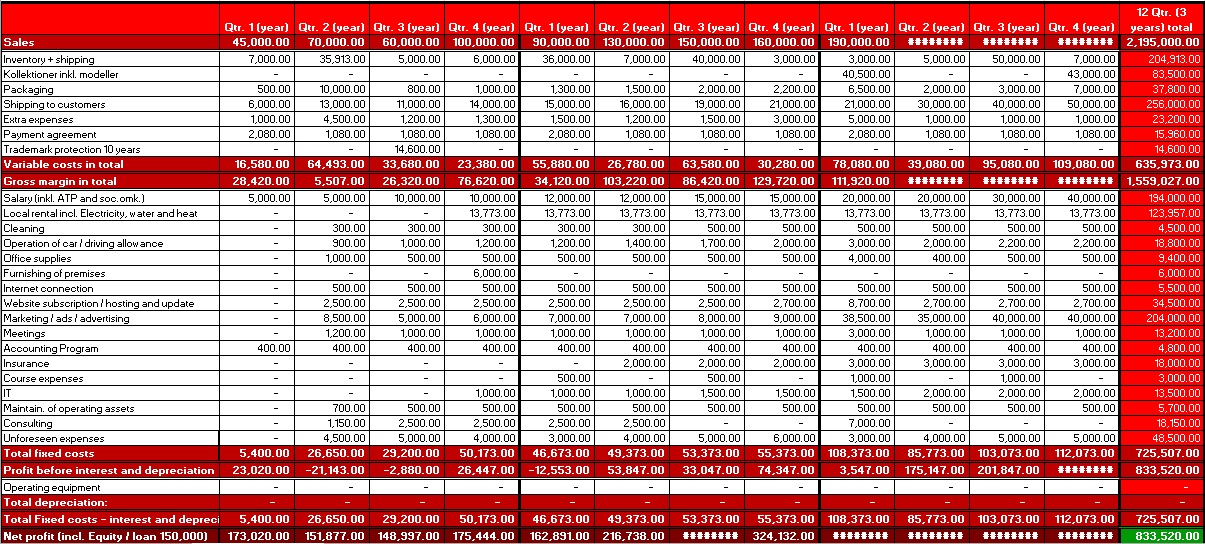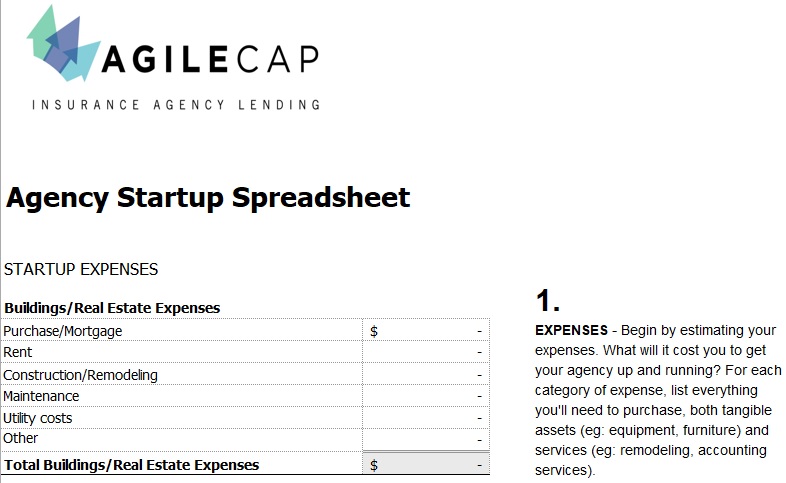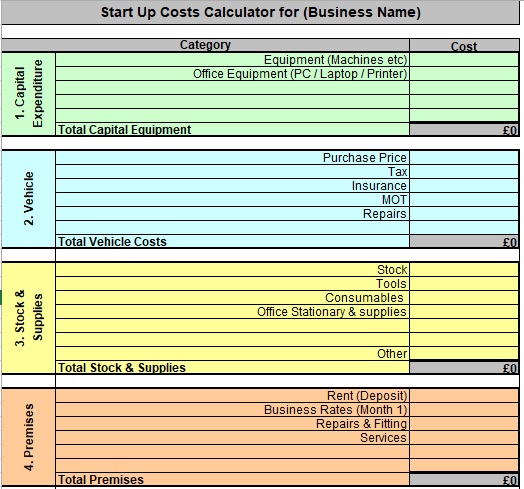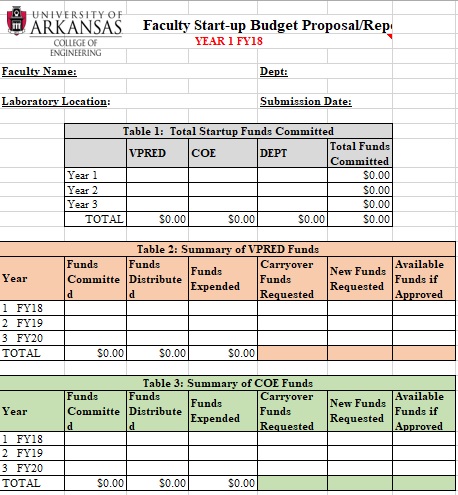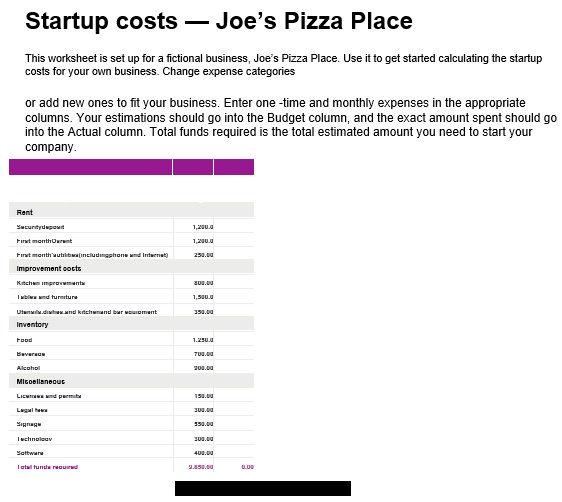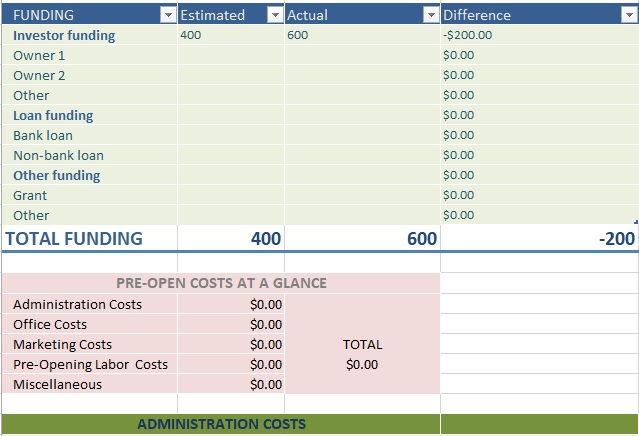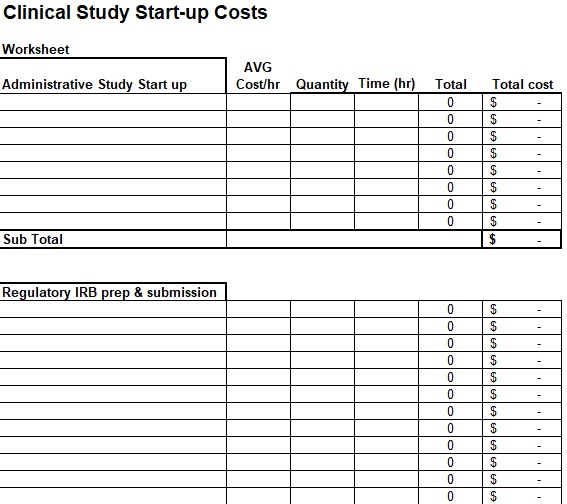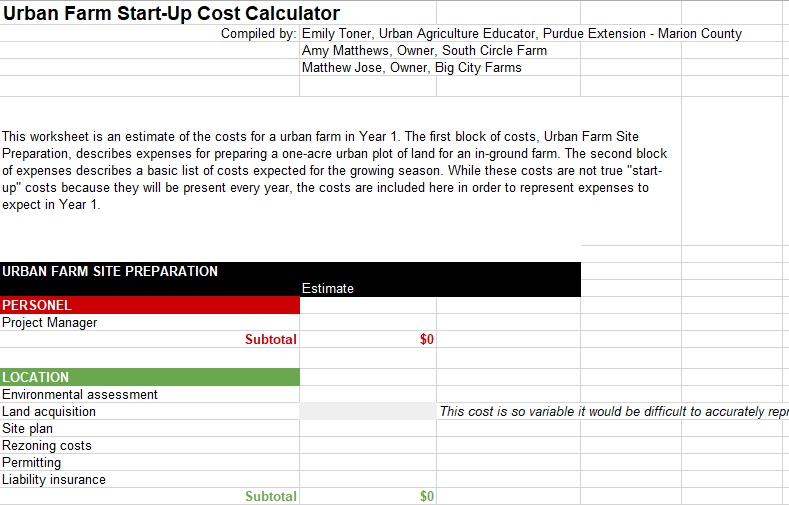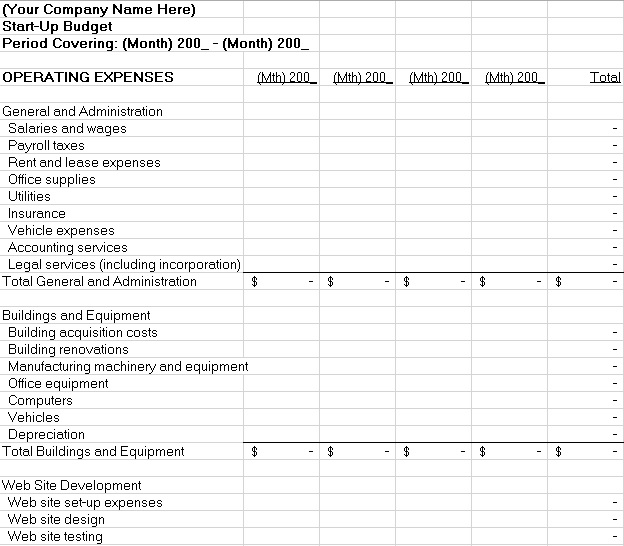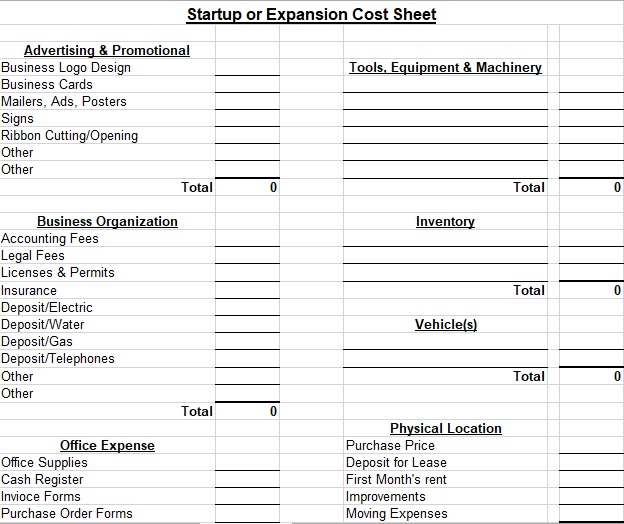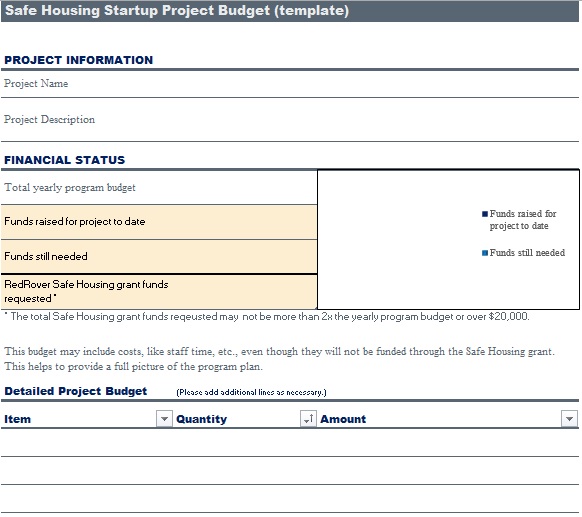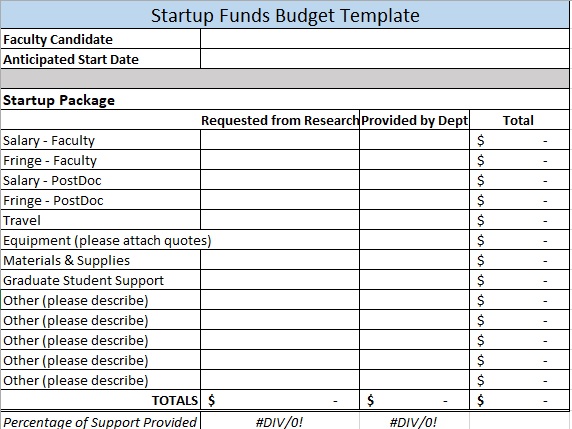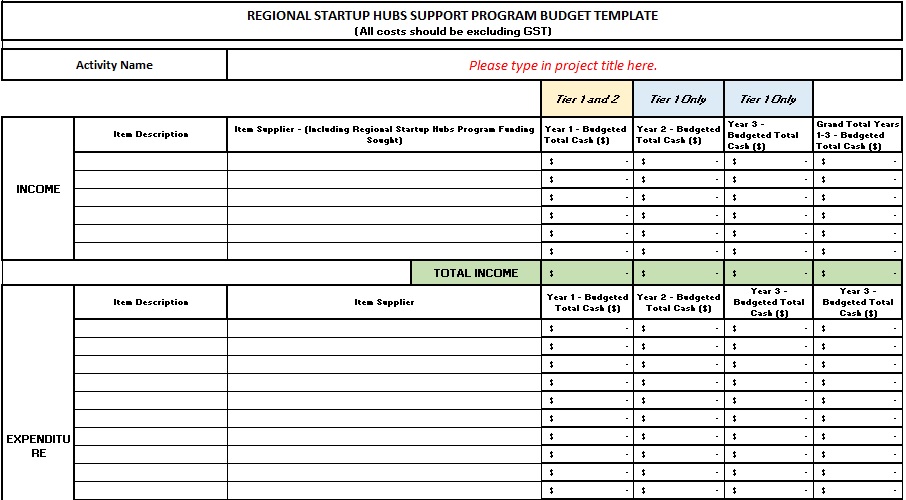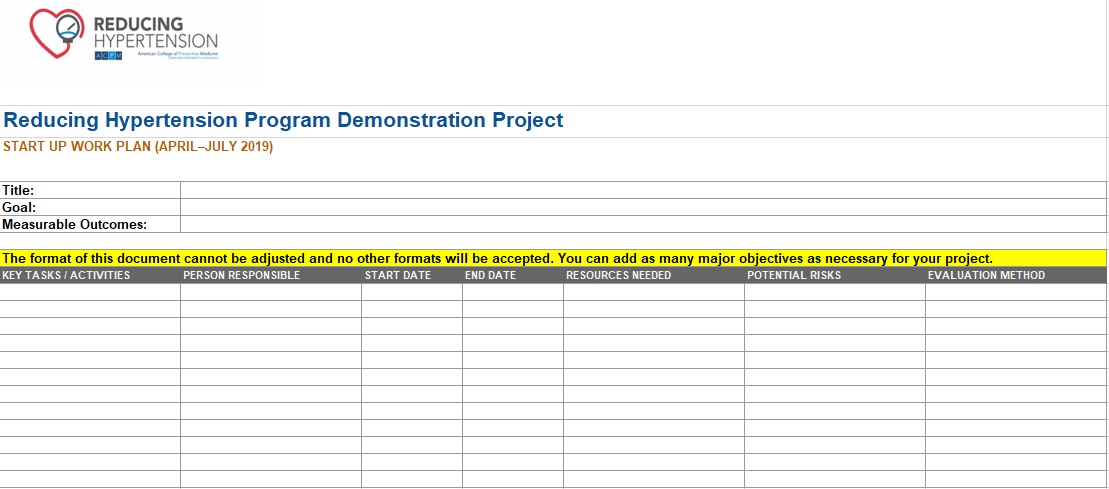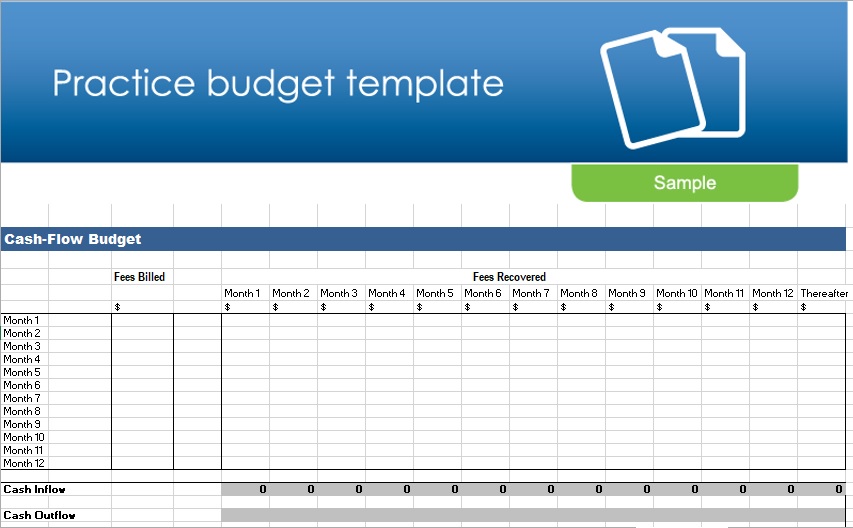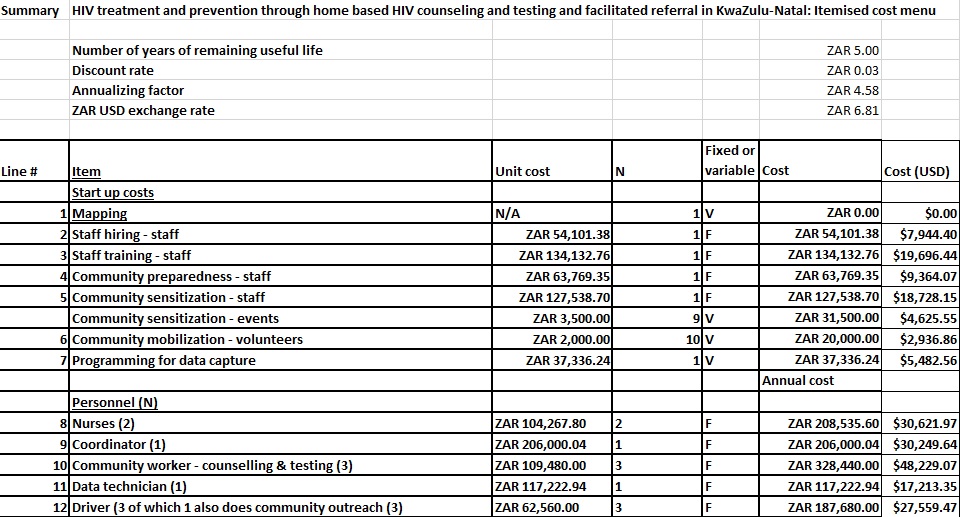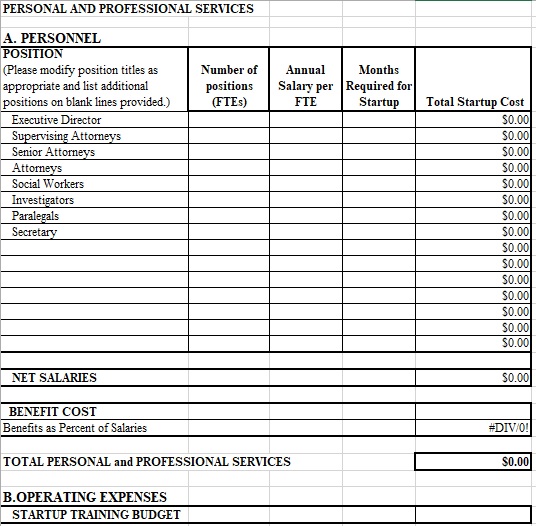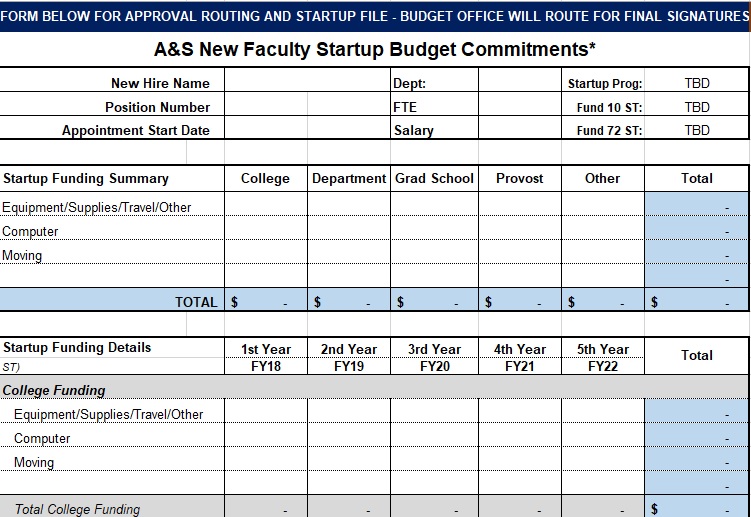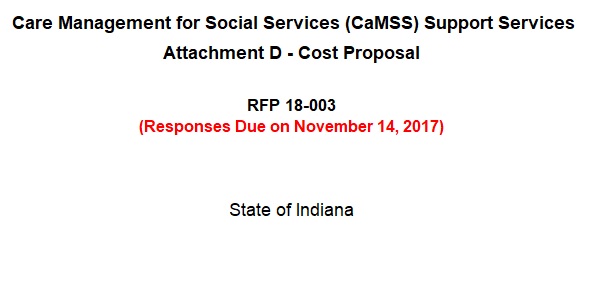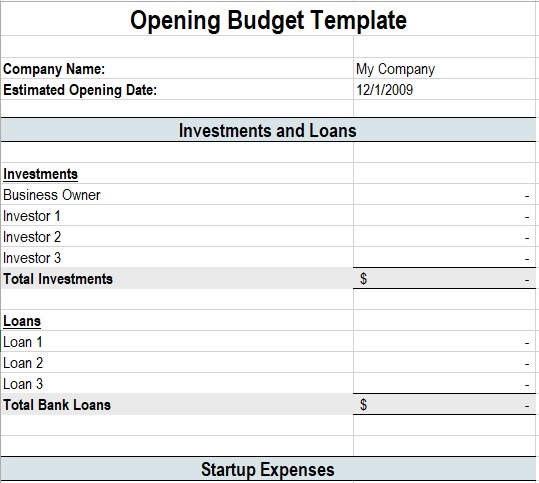A startup budget template is an essential tool for someone who wants to start a business. The budget is the most important thing as you plan for any kind of business. You require money to purchase everything you need for your new venture. That’s why, a startup budget template comes in handy.
Table of Contents
What is a startup budget template?
A startup budget template is a document used by the people who are starting a new business. They use it to organize their startup’s finances. Having a startup budget template provides you a sense of satisfaction and encourages you that you have sufficient resources to get your small business up and running. This document consists of the following key elements;
- Operating expenses
- Capital expenses
- One-time expenses
- Revenue projections
- Break-even point
Types of businesses that require a startup budget:
You should create a startup budget template if you are thinking about starting any type of business. Before you start, use this document to estimate all of your startup costs. Without this template, it is difficult to cope with all of the business startup costs whether you want to start a small business or a large franchise.
Here are the different types of businesses that would get benefit from such a document; You may also like a financial statement template.
Restaurant businesses
Opening a new restaurant is mainly a very costly endeavor. This is because you require a lot of specialized facilities and equipment for it. To create a budget for your restaurant, use the startup cost template whether you plan to purchase or lease everything you need.
In this way, to successfully open your food establishment, you have a good estimate of how much you need to come up with for you. Other than the facilities and equipment include other costs such as;
- Menu Development
- Supplier Sourcing
- Staff Sourcing
- Cleaning Costs and more
Home-based businesses
There are various expenses you may forego and this is the great thing about this type of business. These expenses may include utilities, internet, furniture, and anything else that has already present in your home. Thus, for this type of business, you should create a startup budget template so you don’t end up overspending.
Online businesses
These type of businesses are cheap as compared to others. It is especially true if you don’t need an external party to perform web development tasks. You can create a simpler template for this type of business that includes a few expenses such as SEO, advanced hosting services, and more.
Franchise businesses
Franchisor gives you all information regarding the budget you need to start a franchise business. But, you still have to create your own template to list all of your business startup costs.
How to create your startup budget?
The first thing you have to do while planning to open a new business is to make a startup budget template. You have to come up with a budget in order to see the expected expenses and income of your budget and its cash requires. The budget is one of the most essential elements of any startup business plan. You won’t have any previous information to go on in case this is your first time to start a business. Furthermore, you can consult with another business owner you know. Also, you can research to come up with estimates for your budget.
You should think about why you need to make the budget before starting. Here, the budget is for your business startup. After that, you can begin making your startup business plan template Excel. Here are some tips to create your startup budget;
Make a plan for the first day of your business startup
At first, think about the first day of your business. The first day is the day when you will open your doors and start accepting customers. You can break down the information into four categories while creating the budget for this day;
- The facilities costs for the location of your business include the;
1- The purchase or rental of the space
2- Tenant improvements
3- Signage
4- Lease security deposit - Capital expenditures or fixed asset costs. These are for vehicles, equipment, furniture, and others you require to start your new business.
- For you, supplies and materials to get started on your business.
- Some other costs such as accounting fees, attorney fees, permits and licenses, and others.
For each month, estimate the variable and fixed expenses
- Collect the information you require regarding monthly fixed expenses. These indicate the expended that don’t modify no matter how good or bad your business is.
- Then, on your startup budget template, include the variable expenses. On the basis of the performance of your business, these refer to the expenses which may change.
Estimate the sales each month
- This is the most challenging to estimate among all the information in your budget as you don’t know what the sales will be for your business. You may want to perform these sales projections to make it easier for you;
1- For the first year, the best-case scenario wherein you indicate the most optimistic estimate for your business’ sales.
2- The worst-case scenario wherein you indicate the least optimistic estimate. This indicates your business only makes minimal sales.
3- The most likely scenario is where you indicate an average estimate. This is the sales projection you must show in case you have any lenders. - You can start seeing the result in your cash balance every month when you make any amendments to your sales figures using these scenarios. The cash balance gives you with information regarding your business’ cash requires and the amount you must borrow for your working capital.
- Assume that you won’t collect all sales in order to be as realistic as you can. You may have a collections percentage that’s either smaller or bigger on the basis of the type of business you start and your customers’ payment methods.
Make your cash flow statement
For making your cash flow statement, sum up all the total sales, total collections, and total costs for each month.
Reasons for using a startup budget template:
Here are the reasons that why you should use a startup budget template;
You remember important financial considerations
Startup budget templates consist of important financial information that proves lifesaver for the startup business founders. Never underestimate your startup cost. This is because it may put you in a vulnerable position as well as you may have to face cash flow issues. Thus, startup budget guides you in financial planning and makes you feel confident for each expense that you have accounted.
Better hiring decisions can be made
Startup budget projects your revenue and expenses into the future. This is the most important aspect of your startup budget as it assists you in identifying when and how to hire new employees. For instance, your business is growing quickly and you may need more workers but when you look at your budget it doesn’t allow you to afford a full-time salary for next six months. So, in this situation, you may hire a part-time or commission-based salesperson.
Proves an effective asset for landing investors
If you want to get additional funding from investors then you have to make a sound business plan and a detailed budget. You can’t encourage someone without these documents that your startup is a wise investment. When you organize your budget by using startup budget template, your investors may feel that you’re serious about your startup.
How to use your startup budget?
When you make your startup budget, you must know how to use it. Here are some tips for you;
Funding sources
At first, all the sources that you plan to use for your business, list them all on your template. This may involve any money that is given by investors and owners. Also, it includes the funds from several lines of credit such as bank loans.
Fixed costs
You may have to write any estimated fixed costs after listing all of the funding sources for your business. This cost is required to start your business off to get it up and running. Therefore, these are referred as one-time costs. These cost involve the following;
- Buying assets
- Stocking up on your inventory of business
- Leasing space and more
Fixed costs have two main aspects, the first one is your Working Capital and other is your Reserve for Contingencies. You must have a Contingency Fund, it doesn’t matter what type of business you begin. The reason behind it is that there always will be last-minute fees and costs.
In addition, estimate your contingency funds as per the risks that are associated with the type of business you’re starting. In order to fund the normal operations of your business, you must include a sufficient Working Capital. When you make a sale and when you get the payment, you should remember that there is a specific amount of time between them.
Make your business profitable
If you are starting a new business then you must keep in mind that your business can’t become profitable on the first day. Estimate the operating costs of your business every month in order to have a better estimate of the actual cash that you require. By doing so, you get an estimate that when your business become profitable.
Perform calculations
Perform calculations when you have entered all the required details in your template to get the totals. In this way, you know whether in your funding you have a deficit or a surplus. Your business is good to go in case you have surplus and you have surety regarding the calculations and estimations you’ve made. In case, you have a deficit then you need to look for more funding sources in order to scale back some of the costs.
Keep checking the things
Sometimes you may spend more than that you have planned. To avoid this, you should make a budget. Also, in order to keep everything in check, you should use the template as a reference.
Conclusion:
In conclusion, a startup budget template is the most important tool if you’re thinking about starting any type of business. For making a budget, you can also consult with another business owner you know. You can make your own startup budget or can download a startup budget template online.

